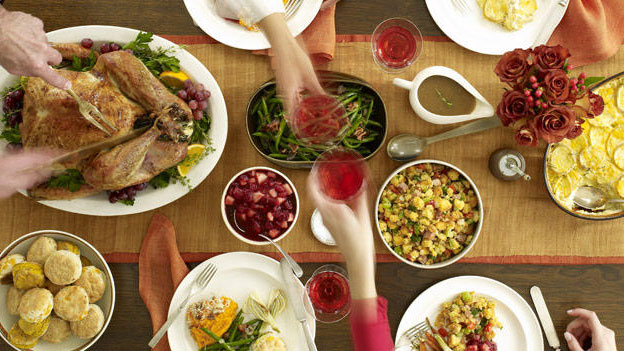“Eat your food!” That’s what many of us were told as children. “There are starving children in Africa.” It turns out, however, that we can better contemplate the needs of starving children once our own bellies are full.
Especially at this time of year, it might seem incongruous to think of those in need while we load up on Thanksgiving goodies for ourselves. I know I feel a twinge of guilt while rushing out the grocery store and past the food drive donation box.
Yet gratitude and compassion go hand in hand with full bellies. Recent studies show that we find it easier to turn our eyes to those who are less fortunate when we have enjoyed some abundance ourselves. As Christians, we are designed to both enjoy and share God’s good creation with gratitude and compassion.
As we contemplate our own prosperity, it can prompt us to better love others. One recent study found that people were more generous toward others when they had recently experienced the satisfaction of a need. Comparing hungry people with recently fed people, researchers found that those who had just eaten after being hungry were more willing to help another with a growling stomach. (They weren’t more helpful in general, just when others were hungry.) Another study found that people who were hungry were more likely to avoid others who showed possible signs of disease.
This is no surprise when we consider that compassion and our bellies might go hand in hand, neurologically speaking. The gut has as many neurons in it as does the spinal cord. Many scientists call this neuron-intensive region the “second brain.” Perhaps this is why we have “butterflies” in our stomachs or “gut feelings” about major decisions. The work of digestion is complicated stuff, requiring a fair amount of neural effort, which can also be employed in other ways.
One of the main sets of neurons leading from the brain to the gut is the vagus nerve, and this group of cells has a lot to do with compassion. Dacher Keltner, professor and co-director of the Greater Good Science Center at the University of California Berkley, calls the vagus a “caretaking organ.” It is heavily involved in digestion, but also involved in social interaction and compassion.
Keltner writes in his book, Born to Be Good, that people with active vagus nerves tend to have more friends and are perceived as kind and agreeable. “People with elevated baseline vagal tone also reported more optimism … [and] greater compassion and awe.” Perhaps most interestingly, within a three-month period, those with active vagus nerves were more likely to report transformative spiritual experiences, leading to greater acts of altruism and increased connections to other people.
There need not be any conflict between enjoying abundant life and loving our neighbors as ourselves. Jesus calls us not to asceticism (nor gluttony) but to generosity. The gifts of this season should serve as a reminder that our abundance and satisfaction are intimately connected with others’. Our generosity must not end at the oversized piece of pie we slice for ourselves. We were designed to care for others as well.
As we enjoy a good meal, give thanks, and drop a bag of groceries to the local food pantry, we are expressing the fullness of our bodies’ divine design. “Freely you received,” Jesus said. “Freely give.”
Rob Moll is editor at large for Christianity Today and author of What Your Body Knows About God (InterVarsity Press).









